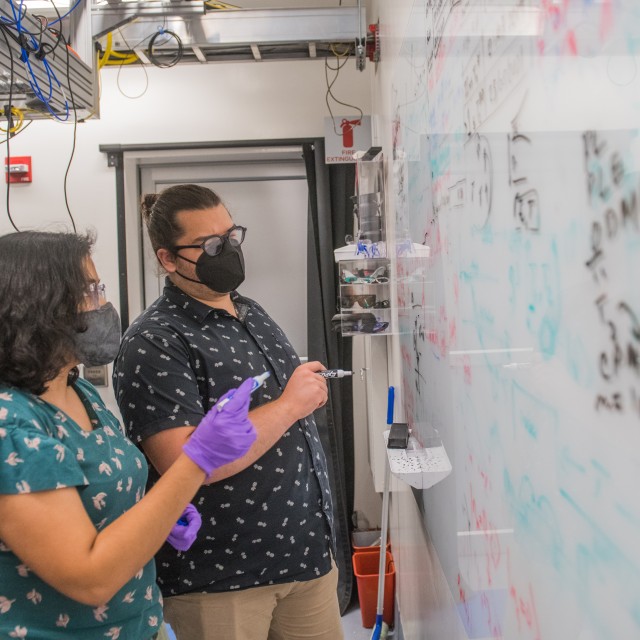Major industry players, like IBM, SandboxAQ, Xanadu, Wolfram Research and others have entire teams dedicated to quantum education and workforce development. Those programs are aimed at building an inclusive and sustainable quantum workforce and addressing what some worry is, or will become, a quantum workforce shortage.
The CQE has made workforce development a central part of its mission, too — and it is a major part of two CQE-led projects, the Economic Development Administration-designated Bloch Quantum Tech Hub and the US National Science Foundation Regional Innovation Engines (NSF Engines) Development Award: Advancing quantum technologies in the Midwest.
Quantum technology, while revolutionary, runs on a foundation of entirely classical systems. Even code on a quantum computer is managed and run by code used in traditional software. The cryogenic systems and electronic circuits necessary for quantum engineering are also well-established technologies with a long, non-quantum history.
For this reason, many of the technical skills required for quantum jobs — coding in Python, working with analog circuits, etching semiconductor wafers — can be learned or acquired in fields that aren’t quantum at all. Sometimes they can be learned on the job: that’s why so many employers told us that what they most need aren’t PhD quantum physicists — although there are still important careers for those with doctorate degrees — but curious learners with experience in another field and a willingness to pivot.
That’s also why projects aimed at quantum commercialization often have a workforce development component focused on building the programming that will equip workers with the skills to make that shift.
For employers — from startups to Fortune 500 companies — having programs that educate people at a variety of levels is key. IBM, for instance, hires at bachelor's, master's, and PhD levels — from quantum software developers and hardware engineers to roles including design, marketing, sales, business development, and product management. To ensure a robust talent pool, the company works with over 270 organizations in the IBM Quantum Network to support education and workforce development efforts, including a collaboration with the University of Chicago, the University of Tokyo, Keio University, Yonsei University, Seoul National University to train 40,000 students over the next 10 years.
The company says it has taught more than 700 classes with IBM Quantum tools and resources, worked with more 22,000 students via in-person events on campuses worldwide, and reached more than 8.6 million learners across all of their educational platforms.
Workforce development initiatives, in fact, are becoming common at quantum technology companies. For example, SandboxAQ, an Alphabet Inc. spinoff and enterprise B2B company that works at the nexus of AI and quantum technology (AQ), partners with universities to jointly develop AI + quantum curriculum, bootcamps, and certification programs and offers open-access educational materials through SandboxAQ Academy. Xanadu, a full-stack quantum computing company based in Toronto, works with universities across the globe, running educational events such as quantum hackathons and creating instructional materials for university faculty teaching quantum programming. In February, Wolfram Research and Infleqtion announced a collaboration with QuSTEAM, a nonprofit quantum education initiative, to expand and improve undergraduate quantum education, integrate practical quantum technologies into curricula, and provide opportunities for hands-on learning, internships, and workshops.



